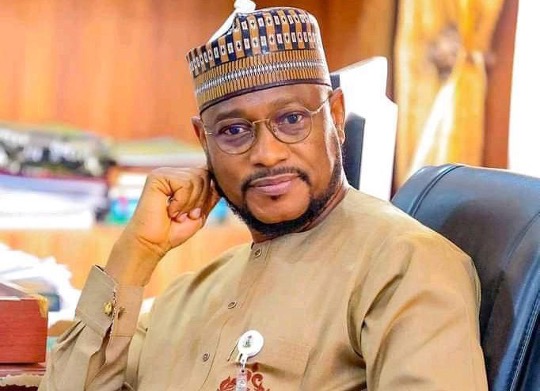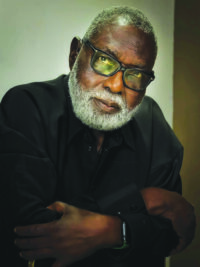By Bimbola Oyesola, [email protected]
As the curtains were drawn on the 113 International Labour Conference (ILC) in Geneva, Switzerland, on Friday, one of the major highlights, which is formalising the informal sector, was considered a step in the right direction by Nigeria’s delegation at the global conference.
The just concluded ILC organised by International Labour Organization (ILO) held from June 2-13, 2025, was attended by over 6,000 delegates from government, employer and worker delegates across the ILO’s 187 member states.
The delegates addressed important world of work matters such as new international standards on the protection of workers against biological hazards in the working environment, decent work in the platform economy and innovative approaches to promoting transitions from the informal to the formal economy.
According to ILO, more than six workers among 10 and four enterprises among five in the world operate in the informal economy. Contrary to the old forecasts, informality has not diminished over time and is even increasing in many countries.
Informal economies are typically characterised by a high incidence of poverty and severe decent work deficits.
The ILO submitted that without formalisation, decent work for all and equity in society will remain an illusion.
In 2015, the ILO adopted the Transition from the Informal to the Formal Economy Recommendation. The Recommendation is a powerful tool to advance towards the attainment of SDGs.
During the last years, a growing number of countries worldwide have developed strategies and policies to facilitate transition to formality.
Africa is considered as a continent with the highest number of informality with Nigeria among the top countries with the situation.
Concerted National Efforts
Nigeria’s Minister of Labour and Employment
Dr. Muhammed Maigari Dingyadi addressing the ILC in Nigeria’s response to the report of the Director-General at the 113th session of the ILC also confirmed the global body report when he said over 60 percent of Nigeria labour force operates in the informal sector.
“We are conscious that over 60% of Nigeria’s labour force operates in the informal economy,” he said.
He however said Nigeria is confronting the malaise through various MSME support programs, like tax reforms, and digital registration drives.
He noted that Nigeria has scaled investments in digital economy infrastructure and ICT training through initiatives such as the National Digital Literacy Framework. The efforts, which he said ensure that youth and workers are equipped for jobs of the future.
“We are transitioning informal businesses into the formal economy while expanding social protection coverage. In this regard, the Federal Government has recently reviewed the National Employment Policy to give full effect to its national aspirations in ensuring decent work for Nigerians across sectors, he stated.
On its part, the Nigeria Employers’ Consultative Association (NECA) has reiterated calls for urgent and coordinated efforts to formalize Nigeria’s vast informal sector, describing it as a necessary step to unlocking sustainable economic growth and expanding the national tax base.
Director-General of NECA, Adewale-Smatt Oyerinde, in an exclusive interview with Daily Sun, during the ILC said “the informal sector has become the major driver of employment in Nigeria, contributing over 65 percent to employment and over 50 percent to the country’s Gross Domestic Product (GDP). Yet, it remains largely unregulated and outside the formal tax and social protection nets.”
Oyerinde noted that despite its critical contributions to the economy, the informal sector is hampered by poor access to finance, weak legal structures, and minimal inclusion in policy formulation.
“With a population of over 200 million and an expanding youth demographic, integrating the informal sector into the formal economy is not just an economic imperative but a social necessity,” Oyerinde stated.
In addition to informality, NECA also spotlighted the emerging global conversation on the platform economy—digital or technology-enabled business models such as ride-hailing and logistics services.
Oyerinde expressed that NECA and its global counterparts are advocating for a recommendation, not a binding convention, on how to govern this fast evolving sector, pending clearer understanding of its scope and implications for the future of work.
Recommendations
The employers’ body recommended a multi-pronged approach involving incentives for registration, simplified tax systems, digitization of processes, and targeted education on business formalization.
It urged government at all levels to provide regulatory and infrastructure support to encourage compliance and productivity among informal operators.
“Formalization will improve government revenue, enhance productivity, and broaden the scope of national planning,” NECA emphasized, adding that effective policy implementation and collaboration among stakeholders are critical to achieving this goal.
The association warned that failure to integrate the informal sector could perpetuate economic exclusion, deepen poverty, and undermine long-term development objectives.
At the global level, ILO said social partners are also developing their relations with workers and enterprises in the informal economy.
The ILO believed that formalisation of the economy is a complex and long term process that often requires to combine interventions on laws and regulations with those aiming to foster productivity and the ability to generate wealth.
“For part of the workforce, the reduction of decent work deficits is the first step toward a progressive formalisation in the longer term,” it stated.
The global body at the conference reasoned that significant reduction of informality in some countries illustrates that achieving results is largely possible.

















Leave a comment